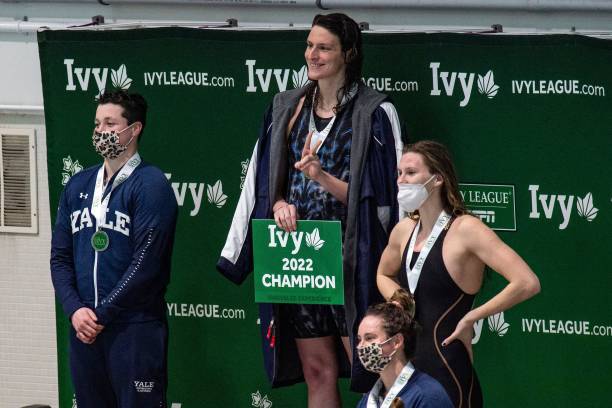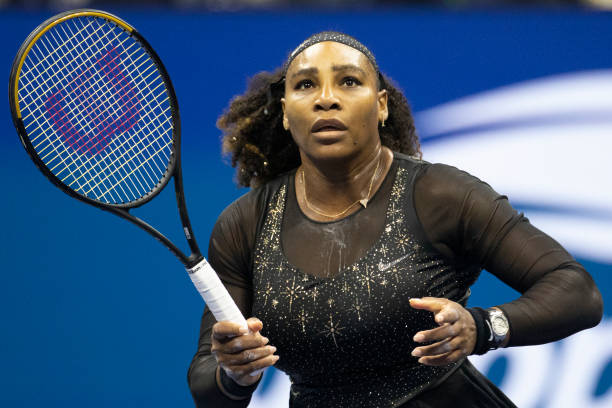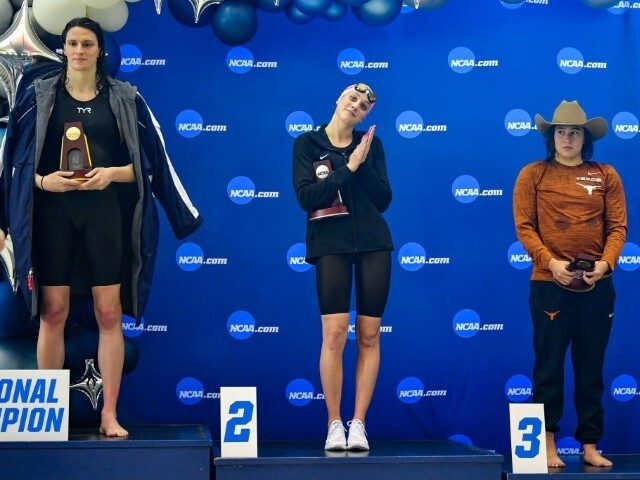A recent op-ed for The Atlantic went as far as to argue that sex segregation in sports makes no sense, citing only two anecdotal examples and not one piece of scientific evidence to support the bizarre thesis.
Written by Maggie Mertens, the over 2,000-word article offers a variety of straw-man arguments about the supposed unfairness of sex-segregated sports, such as when she asserts that men’s sports should be properly segregated by weight and height class. According to her, men may actually have no biological advantage in sports but may only appear to have advantages because women have not been given adequate support.
“Though sex differences in sports show advantages for men, researchers today still don’t know how much of this to attribute to biological difference versus the lack of support provided to women athletes to reach their highest potential,” she writes.

Transgender swimmer Lia Thomas (2nd L) of Penn University and transgender swimmer Iszac Henig (L) of Yale pose with their medals after placing first and second in the 100-yard freestyle swimming race at the 2022 Ivy League Women’s Swimming & Diving Championships at Harvard University in Cambridge, Massachusetts on February 19, 2022. (JOSEPH PREZIOSO/AFP via Getty Images)
“Old notions of sex as a marker of physical capability are changing, and more research is making clear that sex differences aren’t really clear at all,” she continues.
Mertens does not even attempt to touch upon the fact that the Williams sisters both lost back-to-back to a man who happened to be the 203rd-ranked tennis player in the world at the height of their athleticism. Nor does she even entertain the ridiculous results of having the best male boxer in the world compete against the best female boxer in the world.

Serena Williams of the United States in action against Ajla Tomljanovic of Australia on Arthur Ashe Stadium in the Women’s Singles third round match during the US Open Tennis Championship 2022 at the USTA National Tennis Centre on September 2nd, 2022, in Flushing, Queens, New York City. (Tim Clayton/Corbis via Getty Images)
On the anecdotal front, Mertens cites just two stories: that of a girl who underwent a rigorous fitness examination to compete on a boys’ football team and that of a boy who could not play on the girls’ field hockey team. Of all the millions of men and women who have achieved excellence in their sport due to sex segregation, Mertens found just two people to demonstrate the supposed “unfairness” of having boys compete against other boys and girls compete against other girls.
Two examples out possible thousands.
Mertens cites a sociologist, tennis player Billie Jean King, a social neuroendocrinologist, and a lawyer to illustrate. She cites not one biologist or medical doctor or any hard scientist for that matter.
Mertens’ op-ed comes weeks after an op-ed in the Washington Post went as far as to suggest that biological men competing in sports could actually help young girls learn the art of losing gracefully.
“A first-place finish or another win won’t ultimately be the key to a college scholarship, an Olympic berth, or the attentions of a pro scout,” the article said. “Under these circumstances, parents have an obligation to foster not just excellence, but a sense of perspective, proportion and good sportsmanship.”
“Hard work is important. But, sometimes, it won’t be enough, and not only in situations where someone else is cheating,” it concluded.

COMMENTS
Please let us know if you're having issues with commenting.